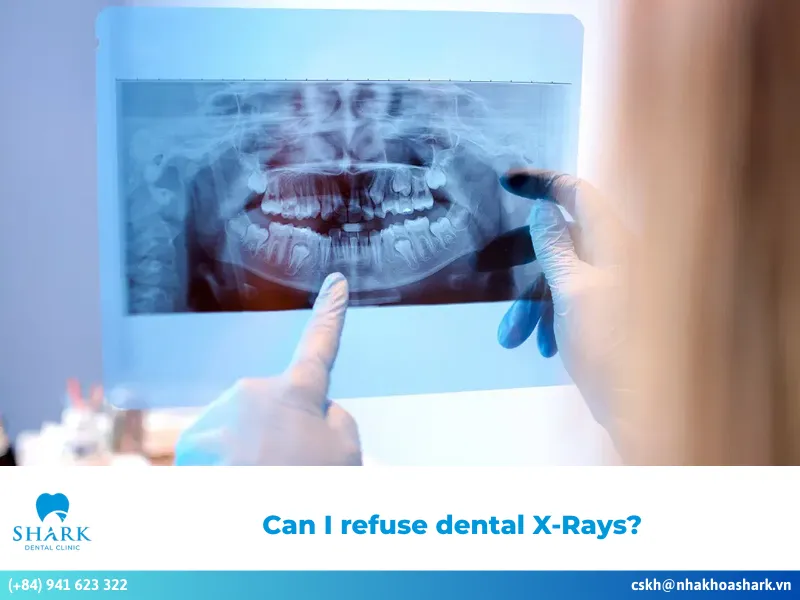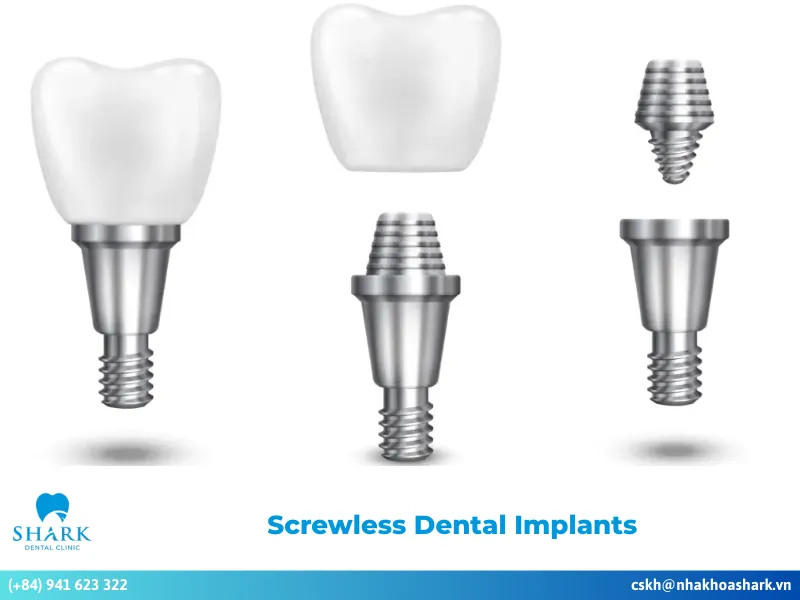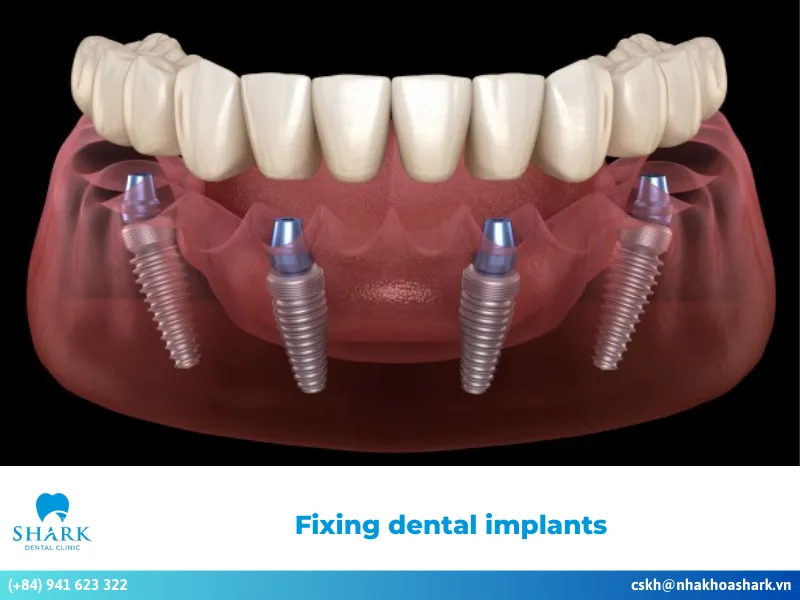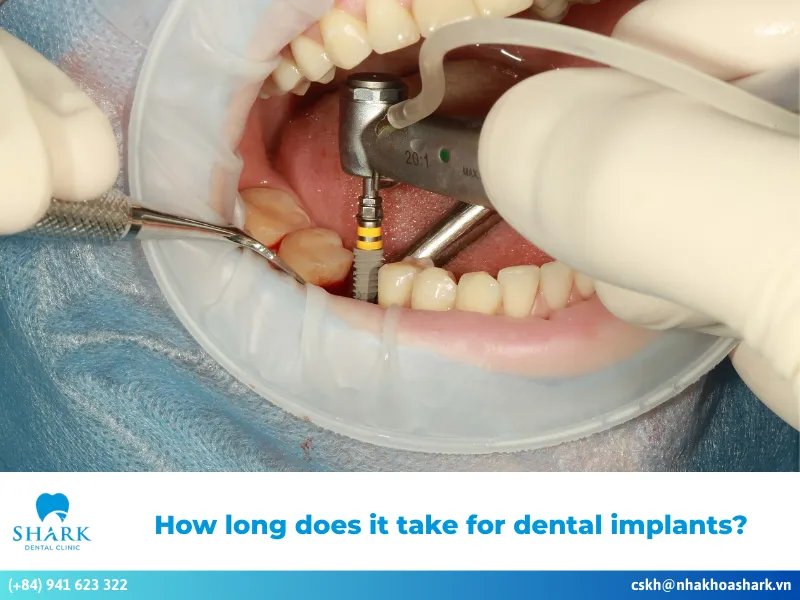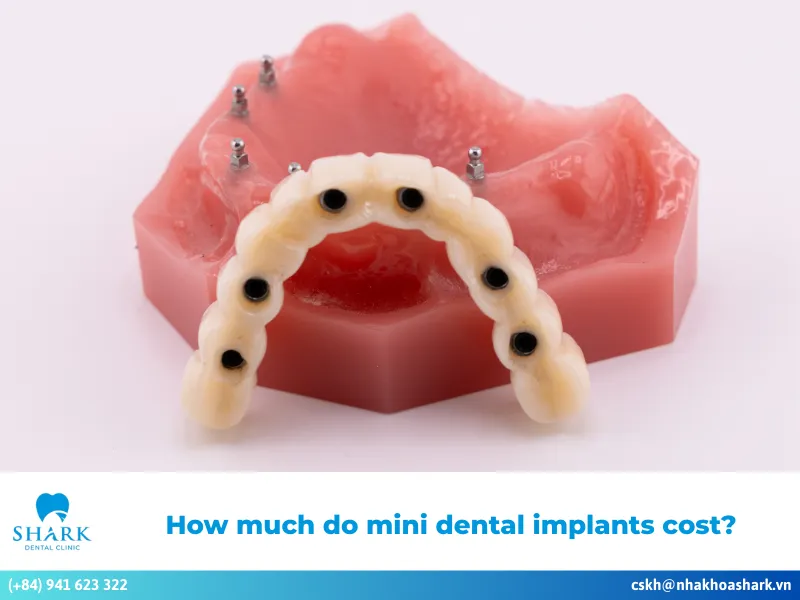An abscess after root canal is a serious infection that can lead to significant consequences, affecting daily activities and eating habits. This article provides information on the causes of this condition, along with effective treatment and prevention methods.
Why do abscesses occur after root canal treatment?
Many patients experience abscess formation following root canal treatment at a dental clinic. This complication can be potentially dangerous if not managed properly. The causes may include:
- Incomplete pulp removal: When the dental pulp is damaged or infected, it must be thoroughly cleaned and completely removed from the canal. If any pulp tissue remains, it can continue to spread the infection and lead to abscess formation.
- Leaking root canal filling: After the pulp has been removed, the dentist fills the root canal to prevent infection. If the filling is not tightly sealed, bacteria can re-enter the canal, causing reinfection and abscess formation.
- Low-quality filling materials: There are many types of dental filling materials available, and if poor-quality materials are used, bacteria can penetrate the canal and attack the tooth, resulting in inflammation and abscess formation.
- Technical errors during treatment: Root canal treatment performed at a low-quality clinic by an inexperienced dentist can lead to procedural errors. This increases the risk of complications, such as periodontal disease and abscess formation.
In addition to the above causes, an abscess after root canal can also occur in patients with existing gum disease or periodontitis. It is more common in individuals with weakened immune systems or systemic conditions such as cardiovascular disease and diabetes.

Signs of a gum abscess
An abscess following root canal treatment is usually easy to recognize due to the following typical signs:
- Severe toothache: Abscesses often cause intense tooth pain, which may feel throbbing and radiate to the neck, ear, jaw, or even head. The pain tends to worsen at night and does not subside on its own.
- Swollen gums: Abscesses can lead to swollen, red gums, sometimes extending to the cheeks. The swelling is painful to the touch and can cause facial asymmetry.
- Tooth sensitivity: Patients with dental abscesses often experience heightened sensitivity, especially when consuming hot or cold foods. This sensitivity occurs because the abscess damages nerves and blood vessels in the mouth, making the teeth more reactive.
- Pus-filled bumps: A hallmark symptom of an infection is the appearance of a bump on gum after root canal treatment. These small, pus-filled nodules form around the tooth root; when they rupture, they release yellow or whitish pus with a foul odor.
- Tooth discoloration: Some patients notice their teeth discoloring after developing an abscess post-root canal. This discoloration occurs when necrotic pulp tissue penetrates the tooth structure, causing it to darken.
- Bad breath: When gums and teeth are abscessed, bacteria thrive in the mouth, leading to persistent bad breath.

In addition to the typical symptoms mentioned earlier, abscesses of the teeth and gums following root canal treatment can also lead to serious systemic symptoms, such as:
- Chills and fever: When an abscess spreads, it can affect the entire body, leading to fever and chills. This is the body’s natural response to combat invading pathogens.
- Swollen lymph nodes: Some patients with oral abscesses may develop swollen lymph nodes in the jaw or neck area. These nodes are usually movable and may be slightly painful to the touch.
- Fatigue and weakness: Individuals with oral abscesses often feel fatigued, sluggish, and generally weak. Many also experience a loss of appetite and insomnia, which can further impact overall health.
An abscess is a serious infection that can directly threaten a patient’s health. If you experience symptoms such as difficulty breathing, trouble swallowing, widespread swelling, rapid heartbeat, or persistent high fever after a root canal treatment, you should seek immediate medical attention at a trusted facility for prompt examination and treatment.
>>> See more: Root canal treatment in Vietnam
How to treat an abscess after root canal treatment?
Depending on the severity of the abscess, your oral condition, and overall health, the following treatment options may be recommended:
Temporary pain relief at home
If the abscess is mild and you only have symptoms such as toothache or sensitivity, you might consider the following home methods:
- Rinsing with salt water: Rinsing with warm salt water can provide antibacterial and anti-inflammatory benefits. It is advisable to rinse daily to help reduce bacteria and prevent infection. Be sure to rinse gently to avoid rupturing the abscess.
- Warm tea bag compress: Tea contains tannins that can effectively reduce swelling and tooth pain. Place a warm tea bag on the cheek near the abscess for 3 to 5 minutes.
- Pain relief medication: Depending on the severity of the pain, a dentist may prescribe pain relievers or anti-inflammatory medications. Always follow the dentist’s instructions and do not adjust the dosage without consulting them.

Professional treatment at the dental clinic
If the abscess becomes severe, spreads, or interferes with daily activities, professional treatment is necessary:
- Incision and drainage: This is the most common procedure for abscesses following root canal treatment. The dentist will make a small incision in the gum and insert a drainage tube to release pus, effectively cleaning the abscess and preventing the infection from spreading.
- Antibiotics: If a systemic infection is detected, such as spreading inflammation or a high fever, specific medications like amoxicillin after root canal will be prescribed to inhibit bacterial growth, manage the abscess, and prevent the infection from spreading to other parts of the body.
- Tooth extraction: In cases where the abscess has severely damaged the tooth, resulting in loss of function, extraction may be necessary to prevent damage to surrounding teeth. After extraction, restorative options such as dental implants can be considered to restore chewing function and prevent jawbone loss.
It is crucial to strictly follow the dentist’s instructions for the treatment of an abscess after a root canal. Depending on individual conditions and the severity of the infection, the dentist will recommend the safest and most effective solution, optimizing both treatment outcomes and and the root canal treatment cost.
How to prevent abscess after root canal treatment?
Preventing an abscess after a root canal is essential for maintaining oral health. Here are some preventive measures:
- Oral hygiene: After a root canal, it is important to brush your teeth at least 2–3 times a day. Use a soft-bristled toothbrush along with dental floss and, if possible, an oral irrigator to thoroughly clean your teeth, especially around the tooth roots and between the teeth.
- Regular dental check-ups: Even after a root canal, patients should continue to visit their trusted dental clinic regularly. Dentists can monitor your gums and teeth, providing timely treatment for any abnormalities that may arise, which helps prevent serious infections.
- Healthy diet: A balanced diet is essential for strengthening your immune system and lowering the risk of infections. Consume foods rich in vitamins and minerals, and choose soft, easy-to-chew options to minimize strain on your teeth.
- Limit sugar and carbonated drinks: After your root canal treatment, it is advisable to avoid sugary foods and soft drinks, as they can lead to tooth decay and create an environment conducive to bacterial growth.
- Promptly address damaged teeth: If you notice any signs of cracks, cavities, or discoloration in your teeth, seek treatment as soon as possible. Options such as fillings or dental crowns can help prevent bacteria from entering and causing abscesses.
- Manage systemic conditions: Chronic conditions like diabetes, hypertension, or heart disease can increase the risk of oral infections. It is essential to monitor and manage these conditions to reduce the likelihood of developing an abscess after root canal treatment.

The information above highlights important steps to take regarding the prevention of abscess after root canal. Always follow your dentist’s advice for oral care, and seek immediate attention if you notice any unusual symptoms.
>>> See more: How long does a root canal take to heal?





